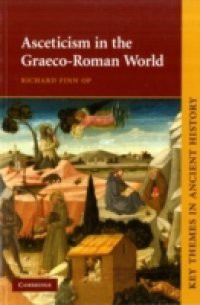Asceticism deploys abstention, self-control, and self-denial, to order oneself or a community in relation to the divine. Both its practices and the cultural ideals they expressed were important to pagans, Jews, Christians of different kinds, and Manichees. Richard Finn presents for the first time a combined study of the major ascetic traditions, which have been previously misunderstood by being studied separately. He examines how people abstained from food, drink, sexual relations, sleep, and wealth; what they meant by their behaviour; and how they influenced others in the Graeco-Roman world. Against this background, the book charts the rise of monasticism in Egypt, Asia Minor, Syria, and North Africa, assessing the crucial role played by the third-century exegete, Origen, and asks why monasticism developed so variously in different regions.

